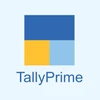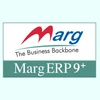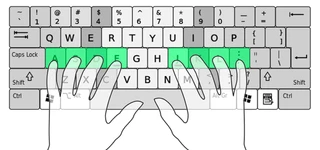What Is Cloud Accounting Software and Why It’s Different?

According to a TechSci Research report, the accounting software market in India is likely to grow at a combined annual growth rate of more than 14 percent from 2016 to 2021. Companies have increased their IT spending and are trusting the best accounting software over paper-based accounts management.
Modern-day companies require timely and accurate financial data and are relying heavily on cloud-based accounting software for it. Comprehensive financial data created by accounting software can help them in gaining better insights into their business. Only by reducing the amount of paperwork and adopting fast and reliable cloud-based business solutions, companies can improve the overall efficiency in financial management.
Cloud-Based Accounting Software: The Next Big Wave
SMBs stayed away from the revolutionary wave of accounting software for a long time owing to their budget constraints. Traditionally, standalone accounting software solutions were not feasible for bootstrapped businesses, as those required a considerable investment in IT infrastructure. But, the cloud-based accounting approach has helped SMBs in coming on a par with big enterprises in terms of tech support. With the monthly pay-as-you-go model, SaaS accounting software is helping small businesses manage their finances with ease.
Let’s have a look at some of the noteworthy benefits of cloud-based accounting software over traditional accounting software.
1. Regular Software Upgrades
Good cloud-based accounting software are upgraded on a regular basis to help users enjoy the latest features with an intuitive interface. With software updates happening automatically, you can focus more on the work at hand and achieve higher productivity. Also, the best accounting software can be linked easily with other applications like project management system, stock management system and POS to help professionals get rid of the manual data entry task.
2. Enhanced Information Security
With cloud-based accounting software, you can store your data securely on the cloud, as opposed to the hard drive which is vulnerable to cyberthreats. Moreover, if your data lives on the cloud, the productivity of your team can increase manifold with uninterrupted access to necessary information from anytime and anywhere. As long as you are connected to the internet and have access to a mobile device, your accounting work is up and running.
3. Accessible Data on the Cloud
The most highlighting benefit of accounting software on the cloud is that it gives you the flexibility to access your data from the workplace, home or even when you are on the go. This way, you can have an up-to-date picture of how your business is performing in terms of profit numbers.
Above all, cloud-based accounting software helps in reducing upfront business costs considerably. Version upgrades, system administration costs, maintenance and service failures are no longer an issue with a cloud-based solution.
What to Do with Cloud-Based Accounting Software?
With SaaS accounting software, companies can adopt an integrated approach towards financial management. From sending invoices via email to managing bank reconciliations or transactions, all accounts related activities can be automated with top accounting software. Other tasks which can be simplified with SaaS accounting software are:
- Managing overdue debts and creating statements
- Invoicing from any mobile device
- Better stock management
- Budgeting for different projects
- Fast payment with debit/credit card
- Easy invoice storage
- Material time saving
- Reduced data entry time
You can also have a better financial review of your business along with accurate budgeting and forecasting of profit and loss. So, migrate to cloud-based business software and benefit from its long list of advanced features.
Suggested read: What is Cloud Computing (with Examples)
More Useful Accounting Application Links
Kalpana’s tech writing journey began in 2017 with Techjockey, and she truly belongs here! If she was not a technical content writer, she would have been a coder. Technical writing, especially for business software, is her passion, and she enjoys every bit of it. From addressing the pain... Read more




























